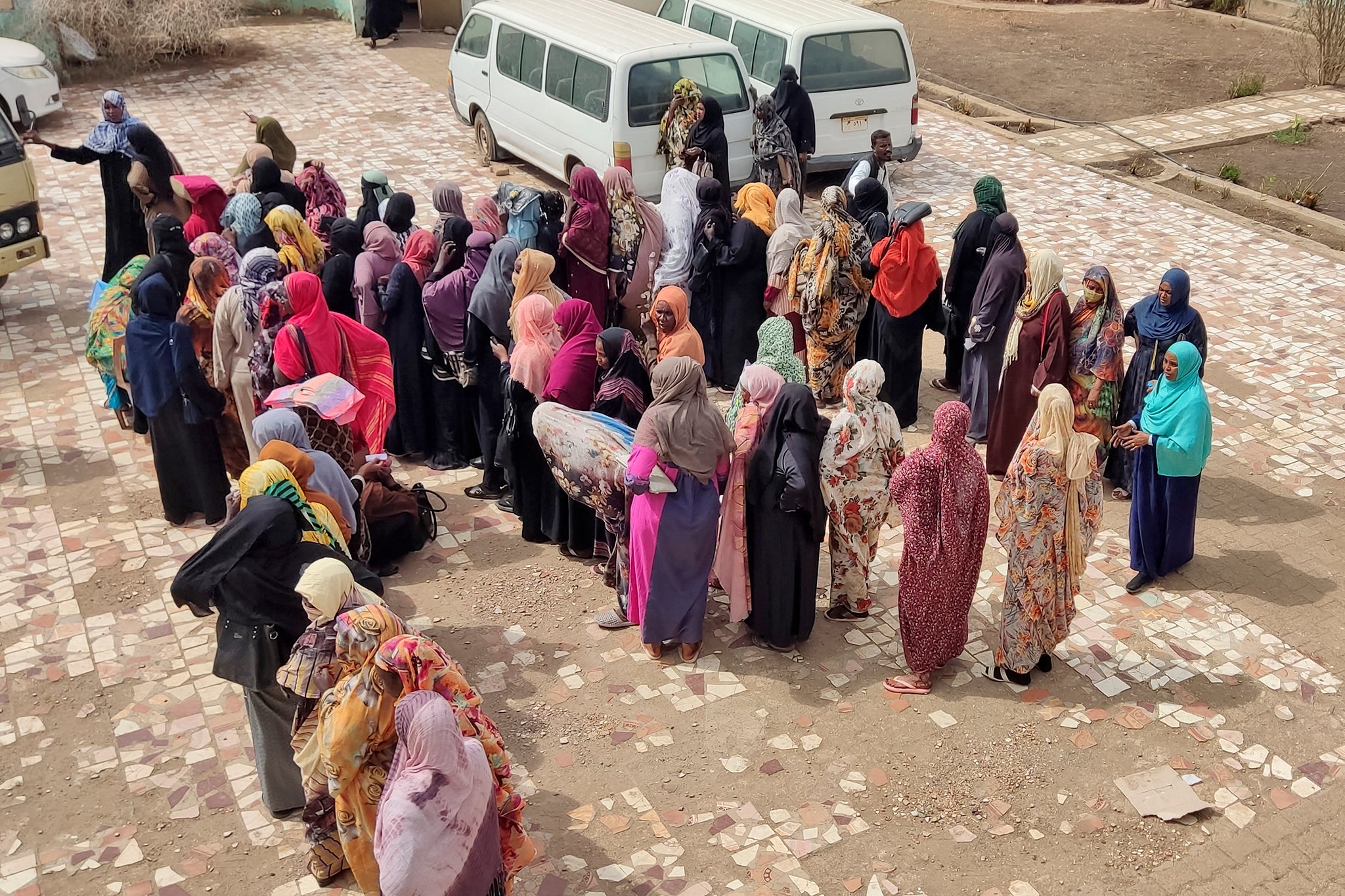The brutal truth about being a young woman in Sudan
The number of women and girls being abducted and subjected to rape, forced marriage, and sexual captivity has risen at an alarming rate over the past two years, writes Dr Elzahra Mohammed. Now is not the time for the world to turn the other way


Since the start of Sudan’s brutal conflict two years ago today, women and girls have come under constant attack. Whether they are visiting the market for desperately needed food, trekking miles for vital health services, or even going to the toilet after dark, the threat of sexual and gender-based violence is increasing by the day.
Over the last two years, the number of women and girls being abducted and subjected to rape, forced marriage, and sexual captivity has risen at an alarming rate.
In the overcrowded camps where I work, we meet girls as young as 12 who are survivors of sexual violence. One girl – not even a teenager yet – recently came to us in labour with twins, but her young body wasn’t mature enough to deliver one baby, let alone two. While the doctors were able to save this young mother’s life, both her twins tragically died in childbirth. Later, I learned that this child was a survivor of sexual violence. It’s a day that will haunt me and my colleagues forever.
As a medical doctor and health specialist for Plan International, I meet girls and young women every day who have fled Sudan’s brutal conflict. They tell me their hopes, dreams, and fears. And I see first hand the devastating impact that sexual and gender-based violence has on their bodies and minds.
Originally from Darfur, I am a mother of three myself, and when I see these girls suffering in the camps, I cannot help wondering what might have happened to me or my children if we hadn’t managed to escape.
For these girls, the threat of violence goes hand in hand with hunger, which in parts of the country has already reached famine levels. The war has devastated food supplies, and where markets are open, the prices are much too high. For most families, the financial situation is dire, and as a result, we see a lot of children and young girls going out in search of food or work. Vulnerable and separated from their families, these girls face an even greater risk of gender-based violence. Yet they have little choice. Malnourishment among children is soaring. I see children, girls, who are desperately thin, and we hear about child deaths every day.
Plan International has been operating in Sudan for 45 years, and we are doing all we can to support these women and girls. Our mobile community teams work closely with survivors of sexual violence, providing vital psychological support and protection services. We also run health programmes for pregnant women, mothers and newborns, and deliver lifesaving food and nutrition, clean water, and sanitation services.
I wish we could do more. But with more than 12 million people forced to flee their homes since 2023, the needs are vast and the resources are not nearly enough. Despite being the largest humanitarian crisis in the world, the response remains massively underfunded, making it hard not to feel as if the world has looked away.
Now, as the war enters its third year, the UK government and the rest of the international community must not turn their backs on Sudan. More than anything, we need peace. We need our children, our daughters, to be safe and to grow up in an environment where they can reach their full potential. We also need urgent and massive upscaling of humanitarian support, which must include funding for essential protection services and mental health support for the vast numbers of survivors of sexual violence.
Sudan’s women and girls deserve to be safe. They deserve to be free from hunger. And they deserve to make their own choices about their bodies and lives. A 12-year-old girl should be going to school, making friends, and nurturing her dreams, not coping with hunger, trauma, and the fear of gender-based violence. It is time to put an end to this nightmare. It is time for the world to stand with Sudan’s girls.
Dr Elzahra Mohammed is Plan International's sexual and reproductive health lead, based in Sudan. She grew up in Sudan’s Dafur region. Due to the conflict, her three children are now living in Egypt with her mother, while she continues her work in Sudan



Join our commenting forum
Join thought-provoking conversations, follow other Independent readers and see their replies
Comments